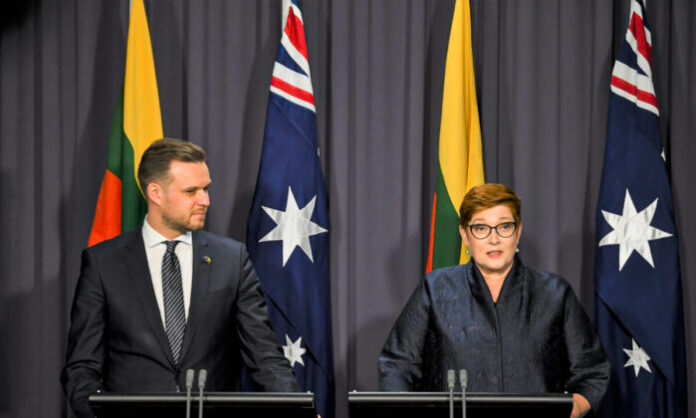
Support for Lithuania from Australia and Britain
China has stopped beef and other food product imports from Lithuania, amid growing tensions between Vilnius and Beijing over its ties with Taiwan. LRT.lt reports that China’s General Customs Administration suspended Lithuanian beef imports on February 9, without giving a reason for the move. Meat imports are usually suspended due to disease outbreaks, although Lithuania has not reported any to the World Organization for Animal Health. Later, the Administration officially notified Lithuania that its beef, dairy products and beer would not be allowed into China.
It has been blocking Lithuanian products for several months now. China cited a lack of documentation as the reason for suspending imports from Lithuania. ithuania has accused China of imposing undeclared trade sanctions in retaliation for Vilnius opening a Taiwanese representative office. The EU is bringing a case against China at the World Trade Organization over Beijing’s trade curbs on Lithuania. According to the European Commission, Lithuanian exports to China fell 91 percent last December, year-on-year. There have also been reports of Chinese authorities pressuring European internationals to drop their Lithuanian suppliers if they want to continue doing business in China.
While the dispute with China has not yet influenced the short-term economic development of Lithuania, investors might balk at medium and long-term growth prospects, according to EurActiv.com. Damage to the economy is not yet an issue because exports to China were relatively insignificant at around 1 percent of total exports. The value of imports from China, on the other hand, is five times higher. Chinese pressure against international companies to shun Lithuanian products might become critical to the Lithuanian economy, with some companies having paused plans to invest in the country already.
On January 27, the EU Commission started proceedings for a WTO case after collecting evidence of the Chinese coercion efforts over the past months. The process can easily take one and a half years, and even after this time, compliance is not guaranteed. However, Commission officials were confident that China would comply with a WTO ruling. After a decision at the WTO and an eventual appeal, the EU could take countermeasures if China does not comply with the ruling. Those usually come in the form of tariffs against Chinese products. However, such tariffs would be applied at an EU level, and it would be difficult to design them to compensate the Lithuanian economy for damages suffered from Chinese coercion.
The foreign ministers of Australia and Lithuania have agreed to step up cooperation on strategic challenges, including Chinese pressure on both countries, as Associated Press reported.
On February 9, Lithuanian Foreign Minister Gabrielius Landsbergis met his Australian counterpart Marise Payne in Canberra. Both Lithuania and Australia have been experiencing deteriorating relations with China. Australian exporters have lost tens of billions of dollars to official and unofficial Chinese trade barriers, covering coal, wine, beef, and other products.
According to Payne, like-minded countries must work together to maintain the international rules-based order, free and open trade, transparency, security, and stability.
“We are sending the strongest possible message about our rejection of coercion and our rejection of authoritarianism,” the Australian foreign minister said. Payne also said Australia was planning to open a representative office of its Trade and Investment Commission (Austrade) in Vilnius “in the coming period”. Landsbergis welcomed the fact that Australia, as well as the US, has joined consultations at the World Trade Organization over the complaint by the EU, accusing China of discriminatory trade practices against Lithuania.
Britain will join the US and Australia in backing a European Union case at the World Trade Organization, according to Anne-Marie Trevelyan, British Secretary of State for International Trade.



























